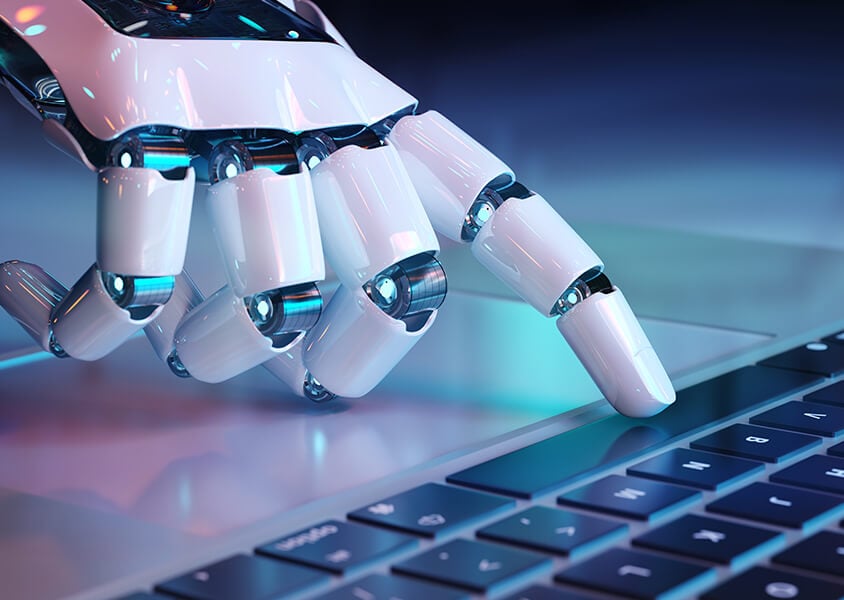DE
- Industries
- Finance
Nearshore software development for finance—secure, scalable, and compliant solutions for banking, payments, and APIs.
- Retail
Retail software development services—e-commerce, POS, logistics, and AI-driven personalization from nearshore engineering teams.
- Manufacturing
Nearshore manufacturing software development—ERP systems, IoT platforms, and automation tools to optimize industrial operations.
- Finance
- What we do
- Services
- Software modernization services
- Cloud solutions
- AI – Artificial intelligence
- Idea validation & Product development services
- Digital solutions
- Integration for digital ecosystems
- A11y – Accessibility
- QA – Test development
- Technologies
- Front-end
- Back-end
- DevOps & CI/CD
- Cloud
- Mobile
- Collaboration models
- Collaboration models
Explore collaboration models customized to your specific needs: Complete nearshoring teams, Local heroes from partners with the nearshoring team, or Mixed tech teams with partners.
- Way of work
Through close collaboration with your business, we create customized solutions aligned with your specific requirements, resulting in sustainable outcomes.
- Collaboration models
- Services
- About Us
- Who we are
We are a full-service nearshoring provider for digital software products, uniquely positioned as a high-quality partner with native-speaking local experts, perfectly aligned with your business needs.
- Meet our team
ProductDock’s experienced team proficient in modern technologies and tools, boasts 15 years of successful projects, collaborating with prominent companies.
- Why nearshoring
Elevate your business efficiently with our premium full-service software development services that blend nearshore and local expertise to support you throughout your digital product journey.
- Who we are
- Our work
- Career
- Life at ProductDock
We’re all about fostering teamwork, creativity, and empowerment within our team of over 120 incredibly talented experts in modern technologies.
- Open positions
Do you enjoy working on exciting projects and feel rewarded when those efforts are successful? If so, we’d like you to join our team.
- Hiring guide
How we choose our crew members? We think of you as a member of our crew. We are happy to share our process with you!
- Rookie boot camp internship
Start your IT journey with Rookie boot camp, our paid internship program where students and graduates build skills, gain confidence, and get real-world experience.
- Life at ProductDock
- Newsroom
- News
Stay engaged with our most recent updates and releases, ensuring you are always up-to-date with the latest developments in the dynamic world of ProductDock.
- Events
Expand your expertise through networking with like-minded individuals and engaging in knowledge-sharing sessions at our upcoming events.
- News
- Blog
- Get in touch

01. Nov 2021 •6 minutes read
Pros and cons of AI
ProductDock
Artificial Intelligence (AI) is one of the leading emerging technologies today that most people talk about in the tech world. In essence, it tries to simulate human reasoning with dedicated digital systems. The term itself (Artificial Intelligence) was first used in 1950 by John McCarty. Back then, he stated that any feature of intelligence or learning, in essence, can be described in a way that a machine can simulate. He predicted that humanity would attempt to find ways to make machines form abstractions, create concepts, use languages, and solve problems that, back then, were only reserved for humans.
A lot of time has passed since 1950. AI is now an actual tangible thing with computer programs learning and thinking more or less for themselves. We can now consider everything as AI as long as it involves a program doing something that normally would involve (or rely on) human intelligence. It goes without saying that the already existing and possible advantages of the technology are immense and can revolutionize not just industries but our entire existence. Some experts say that AI is a double-edged sword and that the technology should be handled conservatively because we can already see some possible drawbacks apart from the obvious cons.
The Pros of AI
In this article, we’ll explore the pros and cons of AI and how this fast-evolving technology is impacting different aspects of modern life. First, let’s start with the pros of technology, which can revolutionize entire industries and improve human life.
Eliminating or reducing human error
You’ve heard of the phrase “human error.” We are all living beings, which also means we will make mistakes occasionally. One of the biggest pros of AI is eliminating or drastically reducing these kinds of human errors. Properly programmed computers, on the other hand, do not make mistakes.
With the power of artificial intelligence, several decisions are taken from the gathered data pool and applied in specific algorithm sets, reducing errors and greatly improving the degree of precision.
For example, AI has managed to reduce human error in such segments as weather forecasting.
Always available
An average human would work for 4 to 6 hours in a given workday (without taking breaks into account). A machine is available 24/7. Simply put, humans require some time off to refresh themselves and get ready for the upcoming workday. They often need even more time off to keep their private and work-life balance (not to mention to keep their sanity). AI, on the other hand, enables machines to work around the clock without any breaks.
A good example would be customer service chatbots. They always respond to our queries no matter how late or early we contact them.
Faster decision-making
Utilizing the advantages of AI alongside other technologies can make machines faster decision-makers than humans and they might even carry out the necessary actions a lot faster. While making a decision, humans will generally analyze a myriad of different facts both practically and emotionally, but with AI-powered machines, the decisions are solely based on pre-programmed practicality, which drives results faster.
A great example of this would be playing a simple Chess game virtually. Trying to beat the CPU in hard difficulty can be quite challenging, even for seasoned chess players.
The AI behind the CPU’s steps always relies on the algorithms that look for the most effective path to beating you. This is another significant benefit when looking at the pros and cons of AI in real-world use.
AI taking risks Instead of humans
Most experts will agree that this might be one of the biggest advantages of Artificial Intelligence. Humans can overcome a myriad of limitations by developing AI robots that can do these risky things instead of us. Just think about things such as going to Mars, exploring the deep oceans, defusing bombs, and other risky actions that would otherwise endanger human life.
Just think about how many human lives would have AI-powered robots saved following the Chernobyl nuclear power plant explosion. They would have helped humans minimize the effects of radiation by being able to control the fire in the earliest stages.
They can make daily life easier
Just think about Windows’ very own Cortana, OK Google (from Google), or Apple’s Siri. These daily use-cases are often cited as consumer-level pros of AI that improve efficiency and convenience.
These are frequently used devices in most homes nowadays for simple daily tasks like making phone calls, searching for different locations, and replying to emails. Twenty years ago, you didn’t have this luxury at your fingertips. You usually used maps (due to GPS systems) to find a location, and you had to ask others for directions.
Now, you just ask OK Google, and it will fetch you to locations with the coordinates and even guide you through the shortest path.
Helping in repetitive jobs
In any given area of expertise, you will find yourself performing many repetitive tasks, from sending thank-you emails to reviewing several documents to catch any potential errors. With the help of AI, we can simply just automate these mundane and repetitive tasks, enabling workers to concentrate more on the creative aspects of their work instead of focusing on the “boring stuff.”
A good example of this would be the usage of AO cognitive automation in banks, where document verification processes for loans can become repetitive and mundane very quickly. With a faster, fully automated process, the bank owner and the clientele are more satisfied with the outcomes.
Digital assistance
Some of the most successful and advanced organizations use digital assistants to interact with their users to save time and the need for human resources. They are also used in many websites to help the user find what they’re looking for. Everything from chatbots to marketing automation processes, they’ve helped in areas such as marketing, brand development, customer support, and much more.
For example, lots of leading organizations use AI tech to help them with customer support.
New inventions
With the help of AI, humans are powering many new inventions in almost all industries. They help scientists and engineers overcome complex problems.
For example, AI-based technology can help in the medical field, helping doctors predict breast cancer in certain patients at earlier stages.
Now that we’ve reviewed the positives, let’s examine the other side of the coin in the pros and cons of AI discussion.

The Cons of AI
In almost all cases, every coin has two sides. AI is no exception under that rule. Below, we will list out the possible disadvantages of relying too much on Artificial Intelligence.
High production costs
AI is a rapidly developing technology, which means that companies must keep updating their software and hardware to be at the forefront and meet the latest requirements. AI-driven machines also need proper maintenance and repairs, which can drive costs upward. Just the production costs of these machines can be enough to make a few companies think twice about investing in the technology.
Lack of emotions
Machines are a lot better when it comes to working efficiently and with precision. However, they cannot replace the “human factor,” human emotion, and the connection that makes the team a good team. Machines are unable to develop emotional bonds with each other and with humans. The development of such bonds is usually seen as an essential attribute when it comes to successful team management.
Lacking creativity
Algorithms can help make swift decisions that can solve the vast majority of production problems. Machines will still only perform the tasks they are programmed to do.
When a company needs truly out-of-the-box solutions, only human creativity will be able to find something that will resolve the issue.
Human laziness
AI can also potentially make humans lazy as the applications are automating and doing the majority of the work. Humans, by nature, tend to get way too reliant on these inventions and processes. This has the potential to cause serious problems for future generations.
Unemployment concerns
As AI is more efficient and better at performing most repetitive tasks and other processes with robots, human workpower is becoming less and less important. This can lead to major problems when it comes to employment standards. While organizations are looking to replace minimum-qualified individuals with AI robots, the surge in unemployment can lead to major economic disturbances and may do more harm than good.
Putting it together
This list covered some of the possible disadvantages and advantages of Artificial Intelligence and AI-driven processes. When evaluating the pros and cons of AI, it’s crucial to strike a balance—leveraging the benefits while actively managing the risks.
Every new breakthrough and tech will have these two sides. It’s up to us to nurture the positives and try to handle the negatives as efficiently as possible to create a better world. Without a doubt, AI has massive potential, and the key thing for humans to focus on is not becoming too reliant on AI technology. Ensure that the “rise of the machines” does not get out of control.
That being said, some even believe that AI could destroy human civilization as we know it. While these apocalyptic predictions might be far-fetched, AI still needs to be kept under control to ensure it always serves humanity’s betterment.


